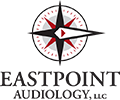
The average summer day is usually filled with fun activities and happenings, from motorcycle rides to family outings to fireworks to sporting events. Most of these activities are completely safe and healthy, but some do come with a risk of noise-related hearing loss. Over time, the loud noises that come with some of these experiences can result in permanent hearing damage. This hearing damage could be the result of anything from a roaring motorcycle engine to the booms of a fireworks show.
What is noise-induced hearing loss? This condition happens when excessively loud noises, over time, trigger damage to your hearing. The consequence of this exposure is loss of hearing. Noise-related hearing loss is effectively irreversible.
Although this type of hearing loss has no cure, it can be effectively managed. Increasing your awareness of these common loud noises can help you better control risks and formulate prevention strategies, so you can protect your hearing over the long run. With a few basic adjustments, you can enjoy your summer fun and protect your hearing health.
Is summer really that noisy?
It can be quite easy to miss noise risks during the summer months. Some of the most prevalent dangerously loud noises include the following:
- Driving: If you’re driving with the windows down, the wind noise can reach hazardous volumes in your ears and this is even more relevant if you drive a convertible. This is especially true if the sound occurs for long intervals without breaks.
- Routine lawn care: Included in this category are chainsaws, weed wackers, leaf blowers, and lawnmowers. These tools have extremely loud powerful motors. Motors that run on electricity rather than gas are usually much quieter, though.
- Loud concerts: Even outdoor concerts have significant risks to your hearing health. After all, these events are planned to be as loud as possible.
- Sporting events: Any time you’re in loud crowds, you may increase your risk of noise damage (this can be even more prevalent at sporting events that feature motorized attractions, such as a Nascar race or monster truck rally).
- Fireworks events: Summer has lots of fireworks. From neighborhood parties to holiday celebrations to sporting events, fireworks displays are everywhere during the summer months. Regrettably, fireworks are incredibly loud and can certainly cause damage to your ears.
- Routine use of power tools: Summer is an ideal time for home improvement projects. But power tools, in general, are typically really loud. Your hearing health is in increasing risk the more you utilize these tools.
The volume level that’s considered to be where damage starts to occur is about 85 dB. This is about the range of a lawnmower, hair dryer, or a typical blender. These sounds may not seem especially loud so this is significant to note. But the volume of these devices can result in hearing damage over time.
Preventing noise-induced hearing damage
Noise-related hearing loss impacts millions of people each year. Noise-induced hearing loss can occur at any age, unlike age-related hearing loss. Prevention is significant for this precise reason. Some of the most effective prevention strategies include the following:
- Wear hearing protection: If you cannot avoid noisy environments (or don’t want to miss out on particular enjoyable activities), you can get a set of good ear muffs or ear plugs. When you’re in environments that are too noisy, use this protection to your advantage. Damage can be avoided in this way. You can be particularly benefited by making use of hearing protection costume designed for you.
- Download a sound level detection app to your phone: You might be surprised at just how fast sounds can escalate above that 85dB danger zone level. Even your earbuds and headphones can start to do damage at these volume levels. There are numerous dependable apps available for smartphones that can help you track ambient noise levels, so you can be more aware of when your surroundings become harmful to your hearing.
- Give your ears a break (and time to recover): Spend a quieter next day after attending a fireworks display. This can give your ears more time to recover and prevent further and more substantial damage.
- Limit your time in noisy environments: The more noisy the environment, the more you should limit your time. Your ears can be protected from long-term damage in this way. Every thirty minutes or so, when you’re at a noisy sporting event, for instance, go and spend some time in a quieter area.
- Use disposable earplugs when you have to: Making use of disposable earplugs may not be as reliable as customized earplugs but, in a pinch, they’re better than no protection at all. An inexpensive set of disposable earplugs can help prevent significant damage if you find yourself in a loud setting all of a sudden.
- Get your hearing checked: In some cases, hearing loss sneaks up on you really slowly. Many individuals won’t detect the symptoms for months or years. Having your hearing checked can help you identify whether you have noise-related hearing loss. We’ll be able to discuss how to avoid further damage, which treatment solutions may be appropriate, and how to keep your hearing as healthy as possible for as long as possible.
- Turn down the volume at home: Simply reducing the volume on your TV and music playing devices can help give your ears some rest and a chance to recuperate. Damage will develop faster if you’re always listening to your devices at a loud volume.
You don’t need to resign yourself to getting noise-induced hearing loss. Prevention strategies can help maintain your hearing. With the proper strategy, you can enjoy all that summer, or any other season, has to offer and protect your hearing.
Begin your journey towards better hearing by giving us a call for an appointment.

